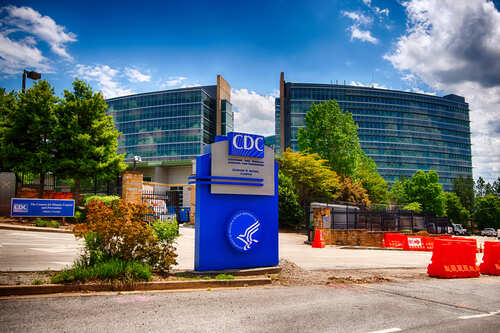CDC leadership resignations raise alarms about America’s preparedness for future health crises.
Story Overview
- CDC officials have resigned en masse due to policy disagreements, raising concerns about public safety.
- Experts warn that the U.S. is becoming increasingly vulnerable to health emergencies.
- Funding challenges and workforce shortages threaten CDC’s operational capacity.
- Calls for renewed investment and legislative action intensify.
CDC Leadership Resignations and Public Health Concerns
The recent resignation of several top CDC officials has put a spotlight on the agency’s capacity to handle future health emergencies. The departure of these leaders, driven by disagreements over policies pushed by RFK Jr., highlights the growing concern about America’s readiness to tackle potential health crises. This development underscores the need for a robust public health infrastructure capable of responding effectively to emergencies.
As the CDC faces these internal challenges, experts are increasingly vocal about the risks posed by underfunding and understaffing. With recent outbreaks and extreme weather events already testing the limits of emergency response systems, the agency’s ability to protect public health is at a critical juncture. These resignations add to the urgency of addressing systemic vulnerabilities that could lead to catastrophic outcomes.
Funding and Workforce Challenges
The CDC has long struggled with funding constraints, often receiving budget increases only in response to specific crises rather than sustained investment. This episodic approach has left significant gaps in data infrastructure, supply chains, and workforce capacity. The COVID-19 pandemic exposed these weaknesses, and subsequent outbreaks have further highlighted the need for comprehensive support.
Despite the launch of the CDC’s Priorities for Response Readiness framework in 2025, aimed at accelerating preparedness, resource constraints remain a significant hurdle. The agency continues to advocate for flexible, scalable policies and rapid data integration, but without increased funding and legislative action, these efforts may fall short of what’s necessary to ensure national health and safety.
Calls for Legislative Action and Investment
Public health experts and advocacy groups are calling for renewed investment in the CDC to prevent future health crises. They emphasize the importance of stable, sufficient funding and modernization to maintain the agency’s readiness. The Trust for America’s Health’s “Ready or Not” report from 2024 highlights the urgent need for legislative action to reauthorize key programs and provide the necessary resources for effective emergency response.
CDC officials resign en masse over RFK Jr’s policies they warn will lead to deaths of children and vulnerable adults | The Independent https://t.co/quUOHHIhkX
— Steve Berkowitz (@steveberkowitz) August 28, 2025
These calls for action come amidst ongoing political debates over public health funding and priorities. As the nation grapples with heightened risks from infectious diseases, disasters, and bioterrorism, the importance of a well-prepared public health infrastructure has never been clearer. To protect the health and safety of Americans, a bipartisan commitment to strengthening the CDC is essential.
Sources:
CDC Emergency Management Foundations
CDC Priorities for Response Readiness
CDC’s Priorities for Response Readiness
Public Health Emergency Preparedness Program
“`
Click this link for the original source of this article.
Author: Editor
This content is courtesy of, and owned and copyrighted by, https://libertynewsalerts.com and its author. This content is made available by use of the public RSS feed offered by the host site and is used for educational purposes only. If you are the author or represent the host site and would like this content removed now and in the future, please contact USSANews.com using the email address in the Contact page found in the website menu.





